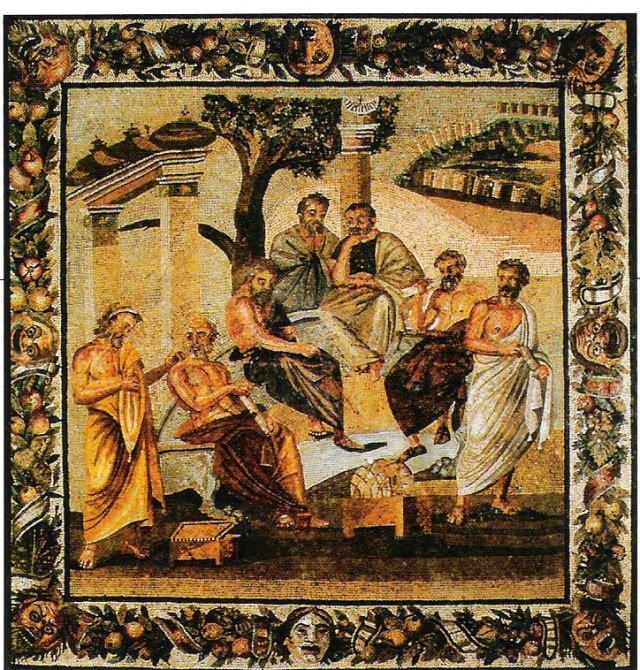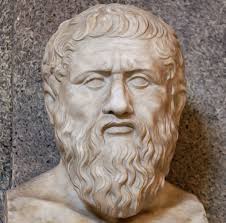As has been frequently noted, the ancient Greeks [roughly 550BC-146 BC] did not have terms or concepts that correspond to the contemporary dichotomy of ‘heterosexual’ and ‘homosexual. Sex was not a taboo and sexual orientation was that persons can respond erotically to beauty in either sex.
Ancient Greece was a free society where sexual relation between male and female were not looked down upon.
Still homosexuality prevailed over heterosexuality. Does it indicate that homosexuality is a natural instinct?
The kind of homosexuality that existed in ancient Greece:
Pederasty
The most common form of same-sex relationships between males in Greece was “paiderastia” meaning “boy love”. It was a relationship between an older male and an adolescent youth.
The roots of Greek pederasty lie in the tribal past of Greece, before the rise of the city-state as a unit of political organization. These tribal communities were organized according to age groups. When it came time for a boy to embrace the age group of the adult and to “become a man,” he would leave the tribe in the company of an older man for a period of time that constituted a rite of passage. This older man would educate the youth in the ways of Greek life and the responsibilities of adulthood.
The rite of passage undergone by Greek youths in the tribal prehistory of Greece evolved into the commonly known form of Greek pederasty after the rise of the city-state, or polis. Greek boys no longer left the confines of the community, but rather paired up with older men within the confines of the city. These men, like their earlier counterparts, played an educational and instructive role in the lives of their young companions; likewise, just as in earlier times, they shared a sexual relationship with their boys. Penetrative sex, however, was seen as demeaning for the passive partner, and outside the socially accepted norm.
[Reference: Martha C. Nussbaum, Sex and Social Justice (Oxford University Press, 1999), pp. 268, 307–308, 335;
Gloria Ferrari, Figures of Speech: Men and Maidens in Ancient Greece (University of Chicago Press, 2002), p. 144–145]
In The Military
The Sacred Band of Thebes, a separate military unit reserved only for men and their beloved youths, is usually considered as the prime example of how the ancient Greeks used love between soldiers in a troop to boost their fighting spirit.
Greek philosopher Plato said that the army should be composed of male lovers:
“If there were only some way of contriving that a state or an army should be made up of lovers and their loves, they would be the very best governors of their own city, abstaining from all dishonor, and emulating one another in honour; and when fighting at each other’s side, although a mere handful, they would overcome the world. For what lover would not choose rather to be seen by all mankind than by his beloved, either when abandoning his post or throwing away his army? He would be ready to die a thousand deaths rather than endure this.”
[Reference: Plato, Sumposium 176]
Love Between Adult Men
Given the importance in Greek society of cultivating the masculinity of the adult male and the perceived feminizing effect of being the passive partner, relations between adult men of comparable social status were considered highly problematic, and usually associated with social stigma. This stigma, however, was reserved for only the passive partner in the relationship. According to contemporary opinion, Greek males who engaged in passive homosexuality after reaching the age of manhood – at which point they were the expected to take the reverse role in pederastic relationships and become the active and dominant member – thereby were feminized or “made a woman” of themselves. There is ample evidence in the theater of Aristophanes that derides these passive homosexuals and gives a glimpse of the type of biting social opprobrium and shame (“atimia”) heaped upon them by their society.
[Reference : Golden M. – Slavery and homosexuality in Athens. Phoenix 1984 XXXVIII : Pg 212-219]
Plato, Noble Lie and Platonic Love: Brainwashing to Promote Homosexuality
Greek scholars understood that sex is a natural instinct. If one is deprived of sex, it would be bad for the individual, bad for the society.
Young male had to be away from his family where he had no way to have a heterosexual relation and quench his sexual thirst.
In politics, a noble lie is a myth or untruth, often, but not invariably, of a religious nature, knowingly told by an elite to maintain social harmony or to advance an agenda. The noble lie is a concept originated by Plato as described in the Republic.
[Reference Plato: The Republic, Penguin Classics, translated by Desmond Lee, p 27]
Platonic Love
Platonic love is a type of love that is chaste and non-sexual. The term is named after Plato, who philosophized about the nature of love.
[Ref: Plato on Friendship and Eros – Stanford Encyclopedia of Philosophy p 9]
With genuine platonic love, the beautiful or lovely other person inspires the mind and the soul and directs one’s attention to spiritual things. Socrates, in Plato’s “Symposium”, explained two types of love or Eros—Vulgar Eros or earthly love and Divine Eros or divine love. Vulgar Eros is nothing but mere material attraction towards a beautiful body for physical pleasure. Divine Eros begins the journey from physical attraction i.e. attraction towards beautiful form or body but transcends gradually to love for Supreme Beauty. This concept of Divine Eros is later transformed into the term Platonic love.
[Ref: Giovanni Dall’Orto, “Socratic love” as a disguise for same-sex love in the Italian Renaissance, “Journal of homosexuality” XVI, n. 1/2 1989, pg 21-59]
Platonic Love is and eg. Of Noble Lie. Brainwashing to promote homosexuality.
Love towards women is Sacred and Divine. Men must not have sexual love for women for physical pleasure but just to reproduce and propagate the race. Men can have physical pleasure with other men or boys. But to love a boy below the age of twelve was considered inappropriate.
[Ref: Kent Gerard, The pursuit of sodomy: male homosexuality in Renaissance and Enlightenment Europe, Haworth press, New York 1989, pg. 49 -71.]
Young male had to be away from his family for war .
To ensure that men does not get frustrated abstaining themselves from sex, homosexuality was promoted in the name of Platonic Love.
‘Pederasty’ made that ground more and more firm.
Sapphic Love, Sexual Relation Between Women in Ancient Greece
Sappho, a poet from the island of Lesbos, wrote many love poems addressed to women and girls. The love in these poems is sometimes requited, and sometimes not. Sappho is thought to have written close to 12,000 lines of poetry on her love for other women. Of these, only about 600 lines have survived. As a result of her fame in antiquity, she and her land have become emblematic of love between women. (thus the term lesbians were coined)
In addition to being a poet, Sappho was the head of what was known as a thiasos. Thiasoi were communities of women in which Greek women could receive a limited form of education. Critically, however, girls in these communities also experienced homosexual love, sometimes for their mistresses (Sappho writes of her love for various students of hers) and sometimes for each other. As the polis evolved, however, marriage came to be an integral instrument for the organization of the culture, and women were confined to their houses; the thiasoi were no more.
Girls were taught from their infancies that it was their duty and destiny in life to give their love to the men who would one day be their husbands. Female homosexuality had no place within the constraints of this new social organization.
Pedagogic erotic relationships are also documented for Sparta, together with athletic nudity for women. Plato’s Symposium mentions women who “do not care for men, but have female attachments.”
[Ref: Plato, Symposium 191]
In general, however, the historical record of love and sexual relations between women is sparse.
[Ref: Gloria Ferrari, Figures of Speech: Men and Maidens in Ancient Greece (University of Chicago Press, 2002), pg 183.]
By: Debashis
General Secretary, Rationalists’ and Humanists’ Forum of India


Hi Debashis,
Thank you for an enlightening article. Thank you for spending the time to research the archives and for putting this piece together.
From your article it is clear that sexual mores are not set in stone, but they are continuously morphing. So, extending this logic, part of current code of conduct may become anathema to the future generations.
In other words people who view the current standards as something very holistic need to be told that what you consider as good today may be viewed as bad tomorrow.
I would like to point out that you have included only the best portrayal of pederasty. I am sure that, just as in 21st century, a small minority (say 5%) of pederasty also involved sexual abuse of young boys against those boys’ wishes. I wish you had also included some negative aspects of pederasty. Somehow your collage above comes across as glorifying sexual practices of the past without mentioning the negative aspects.
Regards
Paddy Srinivas
Excellent comment. Incredibly informative and good overall.
Nice Blog, thanks for sharing this kind of information.